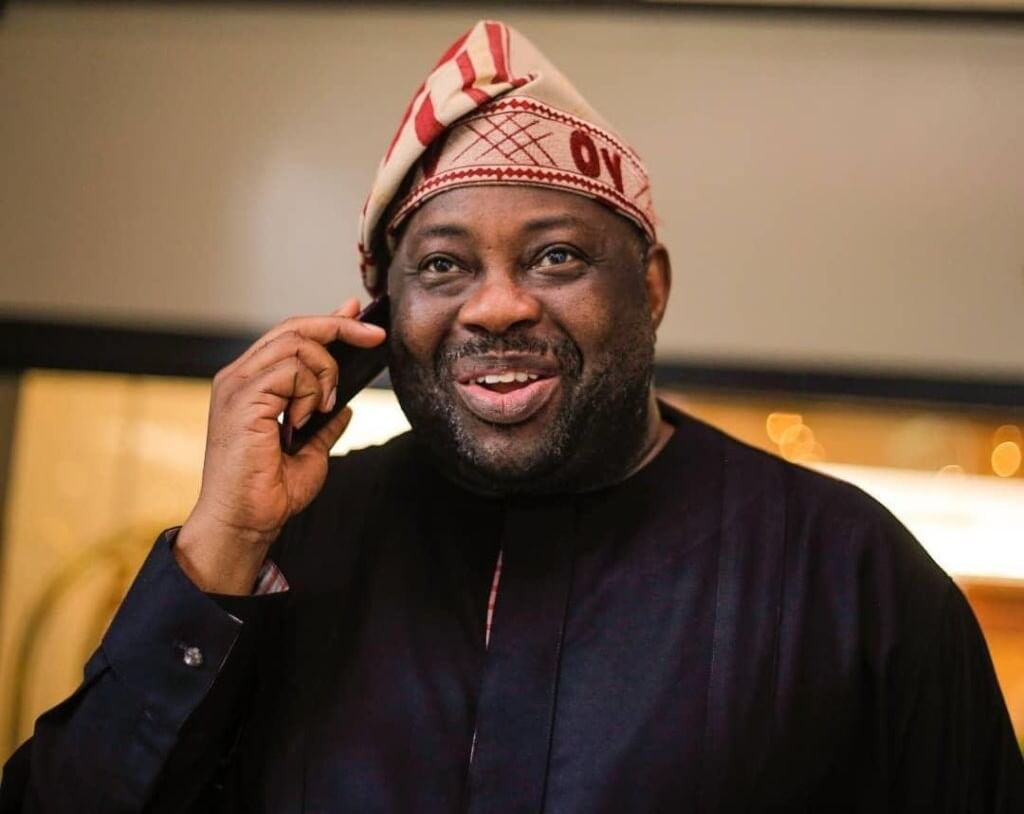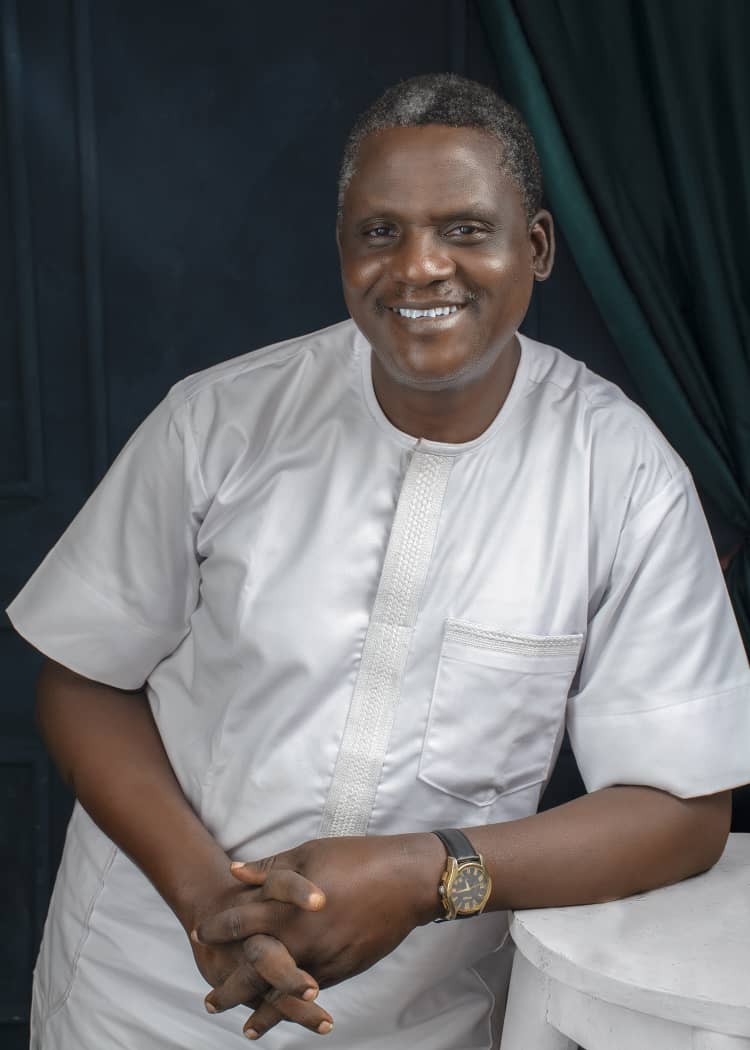By Michael Effiong
It all begun with a phone call. It was one fine morning and I got a call from my former boss, Aare Dele Momodu whom we fondly called Bob Doo.
Before now, when his voice booms at the other end of the line, he would say Editor!!! But these days, since I joined Akwa Ibom State as the Senior Special Assistant to Governor Umo Eno, he has changed it to SSA!!
So when he called that morning, I answered and he told me he that his birthday was fast approaching and he was reflecting that he had just six years to make seventy and just 16 years to 80.
“Do you know, I have just 16 active life remaining in this world if I am lucky?”. I was wondering where he was headed because when my boss goes philosophical like this, get ready for a session of enlightenment about his life, trails and triumphs.
On this particular day, however, all he said was that he was thinking of his legacy and that since he had written many articles on Nigeria and proffered solutions endlessly without much difference, he was thinking of holding a dialogue or a lecture series, something deep. He had no plans for any party or “feferity” like we used to say.
For me, that was a brilliant idea and I told him so. He then said he believed that with the epileptic energy situation in Nigeria, South Africa and the return of the worse form of dum so dum so (light on and off) in Ghana, a discourse on the subject will be useful.
We agreed that it was a good plan. Having worked with him for 20 years, I know that when he has a brainwave like that, his adrenaline usually pumps on overdrive-and for some inexplicable reason, lines usually fall in pleasant places for him.
Five minutes later, in a very excited manner, he called back and announced, “We are good to go! I have just contacted Prof. Barth Nnaji and that day is not only free on his calendar but he has agreed to come.” That was how the first Dele Momodu Leadership Lecture with its theme as “ The Politics Of Energy and The Way Forward” with the Nigeria Institute of International Affairs (NIIA) as venue began.
From that moment on, he began to work the phones, and he usually would not hide any new success story. In less that 20 minutes he has confirmed the Chairman of the occasion and so many of the special guests. He then asked that we set up a small committee of friends and begin to work on this project.
Pastor Lanre Obey (Lansrock), Kingsley James (IDCL), Seyi Orolugbagbe, whom we fondly call Man Seyi, Azuh Arinze, Prince Adeyemi Aseperi, Ian Okudzeto from Ghana, Dr Sani Saidu Baba, Osagie Alfred and Eric Elezuo, our Editor at Ovation International and Supervising Editor of The Boss Newspapers and the only lady in the house, Ms Bola Ojofeitinmi and yours truly were all added to platform as Planning Committee Members.
We all went to work, handling different aspects of the event. Lanre Obey in matter of days delivered the stage design and entire venue plan while IDCL also submitted ideas for the walkway, red carpet and venue branding etc. The show production guru, Edi Lawani was coopted to offer his expertise while Biodun Oshinibosi of Abellinis called to offer his services.Things were taking shape.
Then, in his usual ebullient manner, Chief Momodu shared the good news that Mr Leke Alder, the one we call the Genuis, has agreed to help with logo and other designs!
After sending through different ideas, we adopted one and the creative force of Alder Consulting went to work pronto delivering invitations, newspaper adverts and other promotional materials The Alder team came up with the tag name of the event “Intellectual Discourse”. This was efficiency at its best.
There were reservations about using the NIIA, some believed it was not befitting for his status, but Chief Momodu would have none of it. He argued that NIIA is our equivalent of Chatham House and should therefore be given its pride of place.
“Taking the event out of a formal venue like NIIA, would make it look less serious and intellectual’. He stated firmly. He then announced that as part of his 64th birthday celebrations he would relay the red carpet at the Main Auditorium and also donate two new air conditioning units.
As the day got closer, Chief Momodu rushed to Ibadan for a few days where he was putting finishing touches to his personal library that would soon be opened. He was on the phone at all times keeping tabs on the planning process.
We had two physical meetings but all the coordination was virtual, and the Executive Producer and celebrant, Momodu was on top of everything.
A day before the event, we were at the venue, and everything was coming to fore. The venue was witnessing a massive transformation.
Then, news came that Prof. Nnaji arrived Lagos and was warmly welcomed at the luxurious Delborough Hotel. We we were all excited and when later that night former President John Mahama landed at the Execujet private jet terminal, we knew that all was set.
On day Day May 16, nature decided to test the clout and connection of Chief Momodu by releasing a heavy downpour. But God took control!
From Governor Ademola Adeleke to former Governor Donald Duke, Ooni of Ife, HIM Oba Adeyeye Ogunwusi to Mr Peter Obi, Alhaji Rabiu Musa Kwakwanso to Hajia Bola Shagaya, Dr. Bobby J. Moore, Consul-General of the Republic of South Africa and his wife to Oluwo of Iwo Land, HIM Oba Abdulrasheed Akanbi, Mr Olumide Akpata to Senator (Prince) Lanre Tejuoso, AIG Tunji Alapini (retd) to Senator Olubiyi Fadeyi, Erelu Olajumoke Adebola to Mr Kola Karim, Delborough Hotel owner, Dr. Stanley Uzochukwu to Prince Bisi Olatilo, Prince Damola Aderemi to Mr Segun Fatoye, Dr Larry Izamoje to Mr Mike Awoyinfa, Mr Dozy Mmbuosi to Mr Gbadebo Rhodes-Vivour, Mr Kunle Bakare to Bankole Omishore, Ayo Animashaun of HipTv to Mr Segun Ogunsanya, MD/CEO, Airtel Africa and so many others all defied the rain and the terrible traffic that occurred that day to grace the occasion.
And to sweeten the day, celebrant’s wife, Yeye Aare Bolaji Momodu and three of his children: ‘Pekan, ‘Yole and Eniafe were there to give him the much needed moral support.
Steered by Dr. Rueben Abati assisted by Mr. Oladele Ogunlana, the Guest Speaker and other commentators not only x-rayed the problems of the energy sector but proffered solution. Guests were also served excellent canapes by Laredo and drinks cum cocktails by Depotters Limited. It must be said that the intellectual the content of the event itself was top notch.
Interestingly, though the event was an altruistic effort to help governments across the continent ,which was why it was advertised as apolitical with invitations extended to all political affiliations, members of the All Progressives Party (APC) except for Senator Tokunbo Afikuyomi shunned the event!
Describing the event as a vehicle for international diplomacy, Chief Momodu stated in his welcome address that the lecture was his way of igniting a conversation that would benefit African governments and their people.
Chairman of the occasion, former President John Mahama, who actually solved the energy crisis that engulfed Ghana while he was President said the severe energy deficit on the continent is surmountable.
Drawing from his river of knowledge and bank of experience, President advocated collaboration among countries as well as the willingness to deploy an energy mix: gas, coal, natural gas and renewable energies such as wind, solar, hydro and biomass as solution.
As for Professor Barth Nnaji, Nigeria can solve its current problem if we make the national grid more robust.
According to Prof. Nnaji “Countries like Nigeria have the responsibility to remind developed nations that much as natural gas is a fossil fuel, it is a transition fuel because of its relative cleanliness. Even lithium-ion promoted as the silver bullet to the climate crisis has serious defects including the fact that it is mined like any other mineral, ipso facto, causes environmental pollution
“While the Nigerian government should be encouraged to explore foreign markets for its resources like natural gas, sight should not be lost on the fact that charity should begin at home. In fact, an emergency has to be declared in the domestic gas market to save the electricity sector.
“The super grid should be given priority to boost national transmission capacity. The Federal Government has to resume signing power purchase agreements (PPAs) with appropriate guarantee instrument to attract private sector investment so that Nigeria can experience proper economic trajectory like other emerging nations such as Brazil, Russia, India, China, Columbia, Indonesia, Vietnam, Egypt, Turkey and South Africa”
He then concluded “ We can achieve these if we have the will power and right frame of mind to change the energy equation. It is now up to us a s a nation”
There were very thought-provoking remarks from Mr. Kola Karim, Ooni of Ife, Alhaji Kwakwanso and Mr Donald Duke.
In all, it would be said that the Dele Momodu Leadership lecture was an energetic shot in the arm that should arouse our sense of purpose, wake African governments from their reverie and ignite them to find solutions to the energy crisis.

 News6 years ago
News6 years ago
 Featured6 years ago
Featured6 years ago
 Boss Picks6 years ago
Boss Picks6 years ago
 Headline6 years ago
Headline6 years ago
 Headline6 years ago
Headline6 years ago
 Headline6 years ago
Headline6 years ago
 Headline6 years ago
Headline6 years ago
 Headline6 years ago
Headline6 years ago













